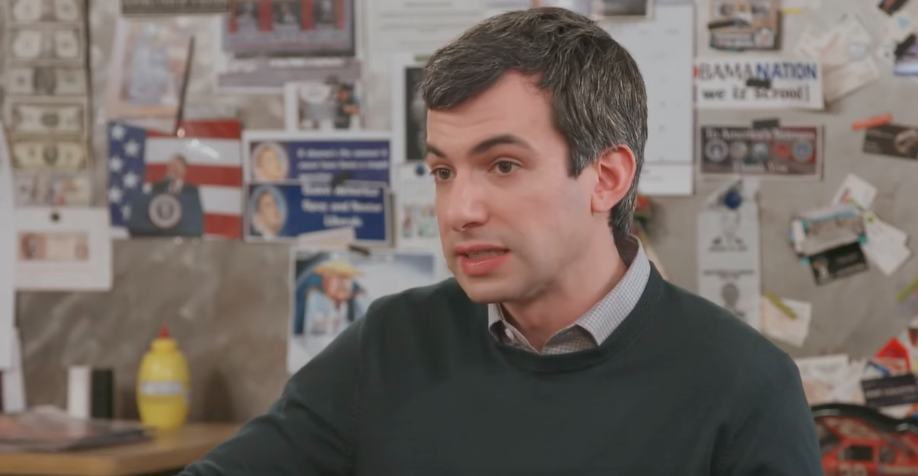The season four finale of Nathan For You was a movie-length journey into the unknown. The Comedy Central series usually follows Nathan Fielder as he attempts to “help” struggling businesses with absurd ideas. But viewers would be forgiven for not identifying this particular episode as a comedy. It turned into an incredible journey to find the long-lost love of an enigmatic older man. With few laughs and legitimate suspense, it continued the show’s work of transforming “cringe comedy.”
Shows like Nathan For You change this genre for the better by pushing boundaries and embracing humanity. This trend elevates the artistry of cringe comedy and makes the laughs more meaningful.
The term “cringe comedy” refers to laughter created from moments that are uncomfortable: the awkward encounter, the social faux pas, the public embarrassment.
The New York Times’ Jason Zinoman argues “as the 20th century has given way to the 21st, comedy has become increasingly dark, anxious and realistic” but also pointed out, “The designation cringe comedy has now become so pervasive that it risks losing its usefulness.”
It’s true — everything from Seinfeld to The Office to Girls gets lumped into this category. After all, so much of comedy these days boils down to uncomfortable situations.
But what we’re witnessing in modern cringe comedy, specifically, is a higher degree of true vulnerability. Shows like The Office and Parks and Recreation were popular pioneers of comedy that blended sitcom laughs and raw emotion. They had characters lay their feelings bare to the camera and to each other. This trend continued with Bojack Horseman, Review and Lady Dynamite, where the protagonists have problems that cannot be solved before the end credits roll.
Cringe comedy had for so long been about moments of fleeting embarrassment. But with this new style, the genre has included a richer picture of what it means to be human. Where we may have cringed before out of sympathy for the embarrassed, we now reckon with the discomfort of seeing ourselves on screen.
I cannot talk about the genre of cringe comedy without mentioning Louis C.K. He has had an undeniable influence on this style, building an entire show around uncomfortable moments. But now we look back on his scenes about masturbation, for example, and cringe for different reasons. His sexual misconduct reconfigures our perspective and reminds us how thin the line can be between cringe comedy and real disgust. We now know that while he may have presented his work as vulnerable, it was just the opposite. His manipulation of the genre works against what usually makes it so special.
Comedians like Maria Bamford, on the other hand, embrace a kind of genuine cringe. In her show, Lady Dynamite, Bamford is not afraid to make the audience sit with the subject of mental illness as she explores her psyche over the course of the season. Her work is personal, but in a compassionate way, as opposed to an exploitative one.
The aforementioned Nathan For You takes vulnerability to new heights through its docu-series format. By including real people instead of scripted characters, the show reaches the next level of truth in cringe comedy. The idea of laughing at people for their eccentricities can feel mean-spirited, and perhaps the show occasionally slips into antagonism. But for the most part the oddballs on Nathan For You are presented in as much detail, with as little comment, as possible. They collectively form a portrait that is funny, cringe-worthy and deeply human at the same time.
I hope to see more of this type of cringe comedy that leaves judgment to the viewer. The type that doesn’t presume the dark to be any more real than the light, that knows the way in which true vulnerability can make us cringe more than any dirty joke. The type of show that leaves us startled by its humanity.



